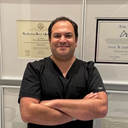Thank you for your question. Neck rejuvenation surgeries are performed under local anaesthetic and often combined with local anaesthetic facelift. You may require muscle tightening, also know as platysmaplasty, which tightens and pulls back the neck. When there is fat under the skin of the neck and under the chin then local anaesthetic liposuction can be performed. However it is important that the skin of the neck is elastic so that one the volume is removed then then the neck skin can contract. Otherwise you will be left with loose skin in the neck. Finally, the skin of the neck that loses elasticity over time, will need to be pulled and tightened under local anaesthetic, to smooth out all the lines, visible, as early signs of ageing. Therefore depending how extensive the neck rejuvenation surgery is, depends on the recovery, however the usual recovery time is, between 5-7 days, and all rigorous activities may be resumed, after 2 weeks. The scars are tucked away from view and they fade very quickly, so that they are hardly noticeable within weeks.









